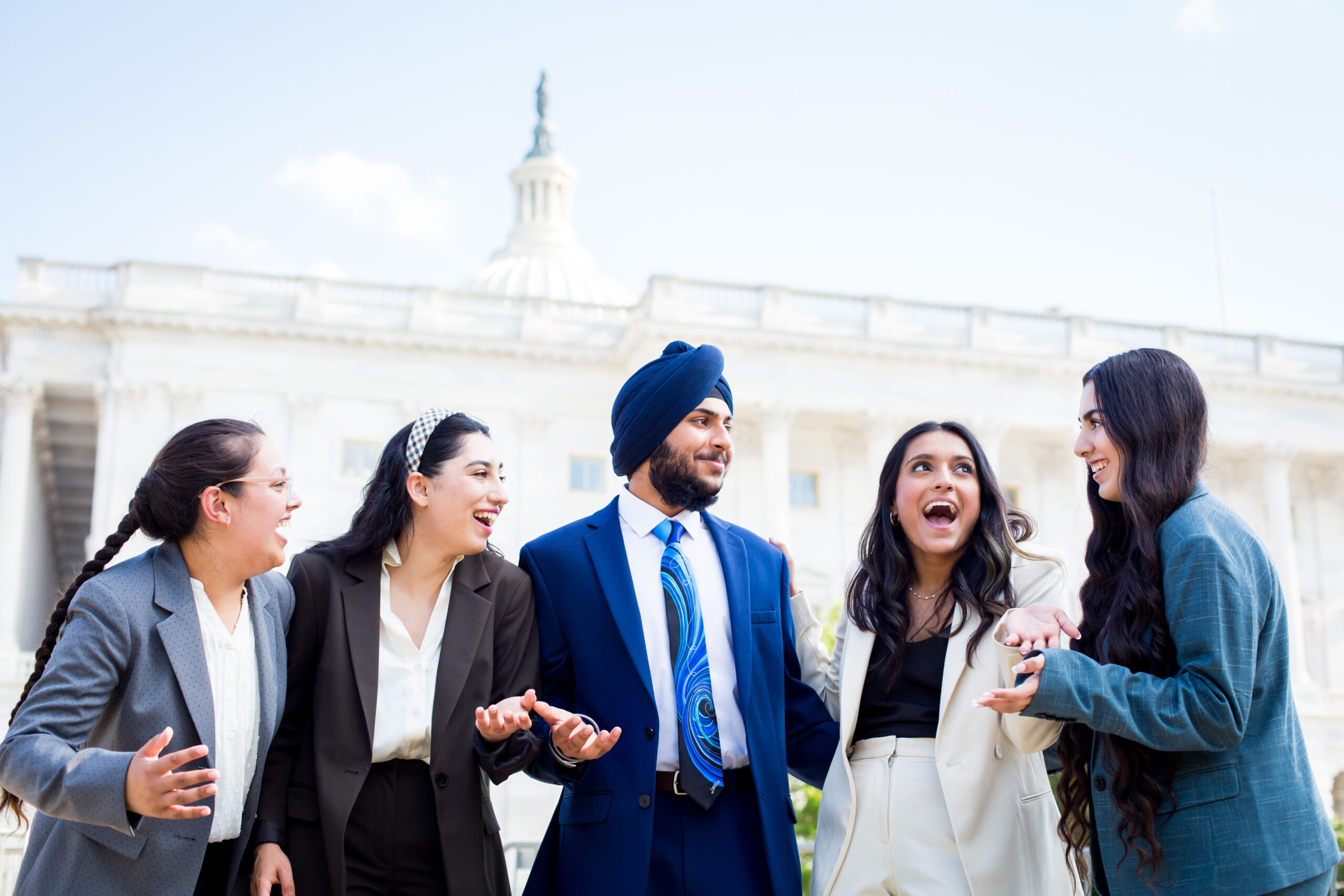Over the past month, we have seen an increase in the human rights violations by the Indian government in a movement known as the “Farmers Protests” and the “Kisaan Morcha.” These human rights violations include the detention of activists and journalists, media suppression, excessive force, criminal sedition charges on those that speak out, including journalists, attacks on human rights organizations, news censorship, media censorship, and internet blocks.
Excessive Force Against Protesters
In India, law enforcement has used excessive force against protesters, including beating individuals, using tear gas, and water cannons on those engaged in lawful assembly. Police have erected barricades, built permanent spikes in the road, and placed barbed wire around the protest camps, and attempted to prevent access to Delhi. The police have also cut off access to water and electricity at the protest camps, which have been in place since about the end of November 2020.
Attack on Humanitarian Organizations
The government has also taken action against humanitarian organizations and persons providing humanitarian aid at the protest sites. The police have even disrupted and beaten doctors providing medical services at the protest sites, including an attack on a New Jersey-based physician, Dr. Swaiman Singh, that left him and his colleagues injured. In a significant example, the government has launched investigations of Khalsa Aid, the United Kingdom based internationally recognized non-governmental organization that provides humanitarian aid to communities across the world.
Targeting Minorities
The government continues to target minority activists, including those advocating for Dalit rights and women’s rights, continuing a documented pattern of suppression; this includes the arrest of labor activist Nodeep Kaur; According to her lawyers, she is subject to torture and sexual assault while in police custody.
Sedition Charges Filed Against Critics
They have arrested over a hundred farmers, journalists, and activists in connection with the protests. The use of criminal sedition charges extends to entertainers, journalists, and other vocal critics of government policies and tactics.
News Censorship and Silencing
Journalists have been targeted in an attempt to limit the free press, generating widespread condemnation from international press organizations. Police have arrested, harassed, and detained journalists for reporting on the actions of the government and affiliated political parties. Police in states controlled by the ruling party have brought criminal charges against reporters, editors, and outlets. This fits a pattern of behavior in India, which stands at 142 out of 180 on the World Press Freedom Index.
Charges Filed Against International Celebrities and Activists
These efforts extend to those in the international community who speak out against the protests. Pro-government groups demonstrate against international celebrities and activists who have commented on social media, including Rhianna and Meena Harris. The Delhi Police have even filed charges against youth climate activist Greta Thunberg and internationally based organizations who speak out against the government actions.
Internet Blocks
The government has blocked the use of the internet and dramatically slowed speeds around New Delhi, including in neighboring states where farmers are gathering. This is not a new tactic. The Indian government previously cut internet service in response to uprisings in Kashmir in 2019. The internet, particularly mobile internet access, has become a fundamental part of daily life across the globe, so deliberate attempts to restrict access presents immediate harm to the livelihoods of individuals throughout India.
Social Media Censorship
The government, through its Ministry of Electronics and Information Technology, has engaged in efforts to censor debate and silence the voices of those who have voiced support for the protests. They issued legal orders requiring Twitter to block content from reporters and disable the accounts of outlets reporting on the protests. Over an estimated 1,100 accounts were targeted. Further, it is believed that the actions of government-aligned proxies have led to the deactivation of the social media accounts of organizations, journalists, and individuals reporting on or supporting the protests. This is in addition to other legal actions brought by the police to silence journalists.
The above-described actions fit a pattern of documented tactics used by the Modi government to stifle dissent. The burden is on the Indian government to respect the human rights of those who disagree with their actions and policies and to recognize the rights of the free press as essential to a functioning democracy.
We urge you to reach out to your members of Congress and let them know about the human rights violations happening in India right now.
You have the ability to speak up – there are three main ways to do that:
- Email your Member of Congress
- Call your Member of Congress
- Share information – remember it is important to ensure you are sharing accurate information; make sure to check your sources.
We have put together a few resources for you to use in support of the farmers protest; check out our website www.saldef.org/farmersprotest.
